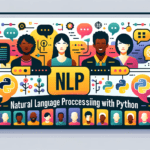Navigating the Best Cloud Solutions
In today’s fast-paced digital era, where data is as valuable as gold and businesses are constantly evolving, cloud solutions have emerged as the unsung heroes. Seamlessly storing, processing, and managing vast amounts of data, these virtual platforms have transformed the way businesses operate. But with a myriad of options available, how do you pinpoint the best cloud solution for your needs?
The Rise of Cloud Computing
From Physical to Virtual: A Revolution
Picture this: a decade ago, companies were burdened with hefty physical servers, regular maintenance woes, and the constant fear of running out of storage space. Fast-forward to now, and the narrative has changed dramatically. Cloud computing has ushered in an era where storage and data management are handled virtually, negating the need for physical infrastructure. Impressive, right?
Benefits of Cloud Solutions
Cost-Efficiency
Remember the costs associated with maintaining physical servers? With cloud solutions, those are a thing of the past. You only pay for the storage you use, and there’s no need to fret about maintenance or hardware upgrades.
Scalability
Businesses evolve, and so do their data needs. Cloud solutions offer the flexibility to scale up or down based on your requirements. Growing faster than anticipated? Simply adjust your plan. It’s that easy.
Flexibility and Mobility
With cloud solutions, your data isn’t tied to a specific location. Access, modify, or share your data from anywhere in the world. All you need is an internet connection. Remote work just got a lot simpler!
Security Features
Contrary to popular belief, cloud solutions often offer robust security measures, including encryption, multi-factor authentication, and regular backups. Sleep easy knowing your data is in safe hands.
Diving Deep into Diverse Cloud Solutions
In an age where technological reliance is growing exponentially, cloud computing has positioned itself as the linchpin of digital progression. As the horizon of cloud-based solutions broadens, the key question arises: How do we choose the right cloud type amidst the plethora? Let’s venture into this exploration!
Beginning with Cloud Basics
The New-age Data Handling Paradigm
Cloud computing offers a refreshing departure from age-old data storage and management methods, proffering resources that can be scaled up or down based on needs, all accessible through the internet. Say goodbye to cumbersome servers and dedicated tech chambers. Welcome to a world where data management is both nimble and versatile.
Understanding Deployment Models
Open-to-All Public Cloud
Managed by external organizations, public clouds give access to storage and other resources over the internet to anyone who wants it. Platforms like Google Cloud and Microsoft Azure exemplify this. They’re budget-friendly and versatile, though might not be apt for super confidential data.
Organizational-centric Private Cloud
Crafted for specific enterprises, private clouds deliver resources tailored to an organization’s unique needs. Whether they’re stationed on-site or managed by external entities, they stand out for their top-notch security and personalization, fitting like a glove for entities with particular regulatory requisites.
The Best of Both: Hybrid Cloud
Hybrid clouds, true to their name, amalgamate the strengths of both public and private clouds. This fusion ensures data and apps can be shuffled between the two, paving the way for adaptability and making the most of existing systems.
Collaborative Community Cloud
Striking a balance between public and private, community clouds cater to several entities that share common ground in areas like security norms or regulatory needs. They’re communal but confined to a distinct cluster.
Cloud Types Based on Services Rendered
Foundational Infrastructure as a Service (IaaS)
At its essence, IaaS presents the basic tools users necessitate to orchestrate apps and handle tasks. Picture it as online resources that mirror computing functions – encompassing things like online storage spaces.
Developer’s Haven: Platform as a Service (PaaS)
PaaS goes a notch higher, furnishing a holistic platform that empowers users to craft, administer, and run apps, sidestepping intricate infrastructure concerns. It’s the developer’s trusted ally, offering a smoother application crafting journey.
User-friendly Software as a Service (SaaS)
SaaS operates on a distribution paradigm where software applications are hosted remotely and provided to users online. Renowned instances include platforms like Google Workspace or Microsoft Office 365.
Event-Driven Function as a Service (FaaS)
Emerging from the world of serverless computing, FaaS empowers developers to activate sections of an app code when triggered by specific events, eliminating the fuss of managing extensive infrastructure. The buzzwords here? Speed and adaptability
Choosing the Right Solution for Your Business
Assessing Your Needs
Before diving into the sea of cloud solutions, it’s crucial to assess your specific needs. How much storage do you require? What’s your budget? Answering these questions will provide clarity.
Cost-Benefit Analysis
While it’s tempting to opt for the cheapest solution, it’s essential to weigh the pros and cons. Consider factors like uptime, customer support, and additional features.
Future Trends in Cloud Computing
Integration with Advanced Technologies
As technology evolves, so will cloud solutions. Expect tighter integrations with AI, machine learning, and even quantum computing. The future is not just about storage; it’s about intelligent data processing and management.
Conclusion
Navigating the world of cloud solutions might seem daunting, but armed with the right knowledge, you’re well-equipped to make an informed decision. As businesses continue to embrace the digital age, cloud solutions stand as pillars of efficiency, flexibility, and innovation. Here’s to harnessing the power of the cloud and propelling your business into a brighter, more efficient future.




